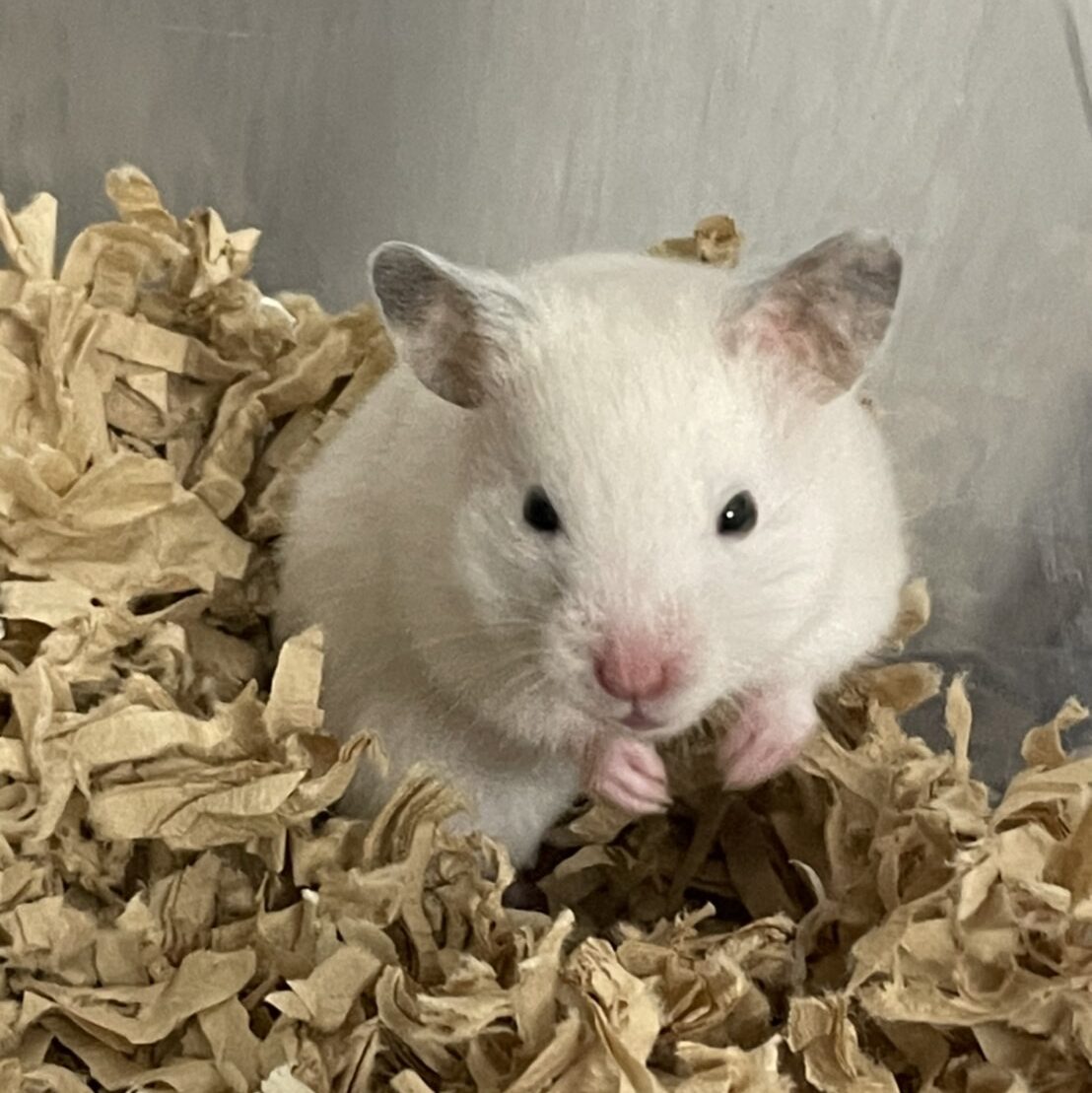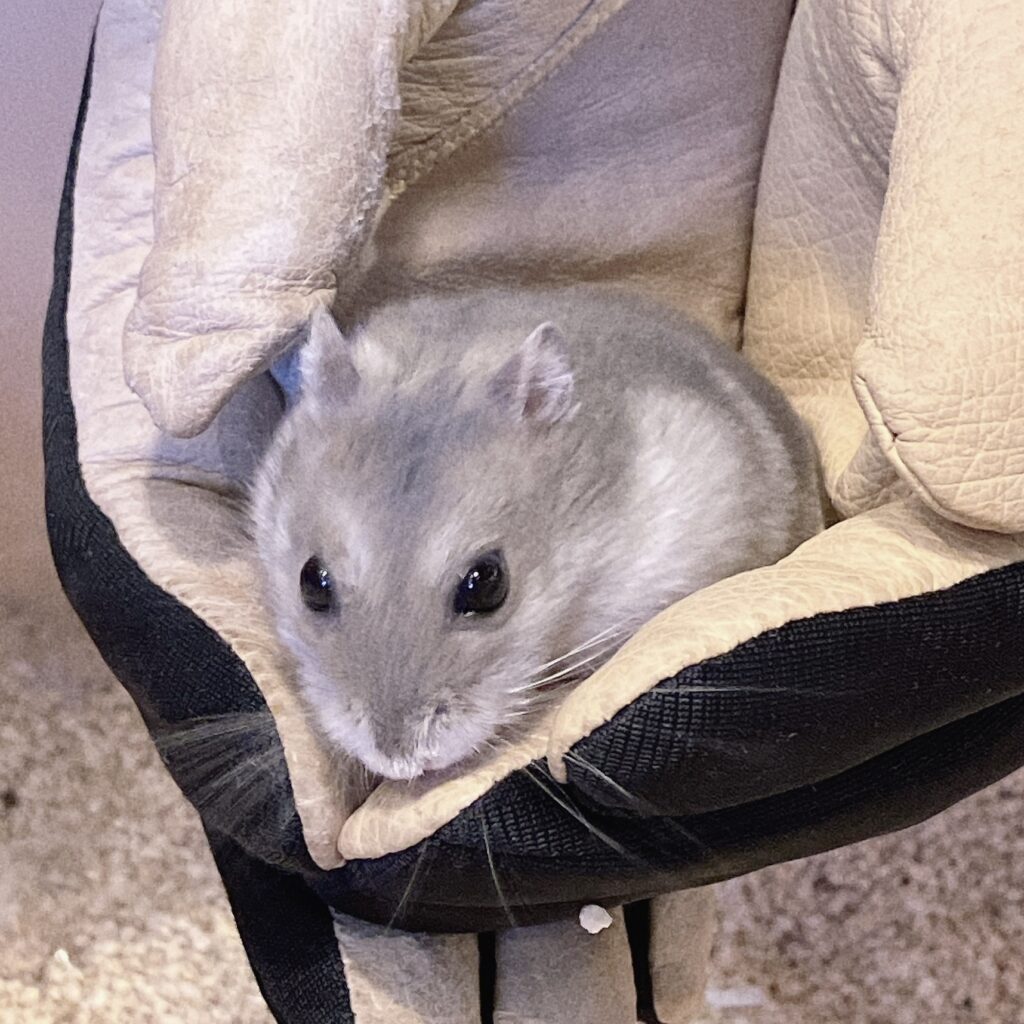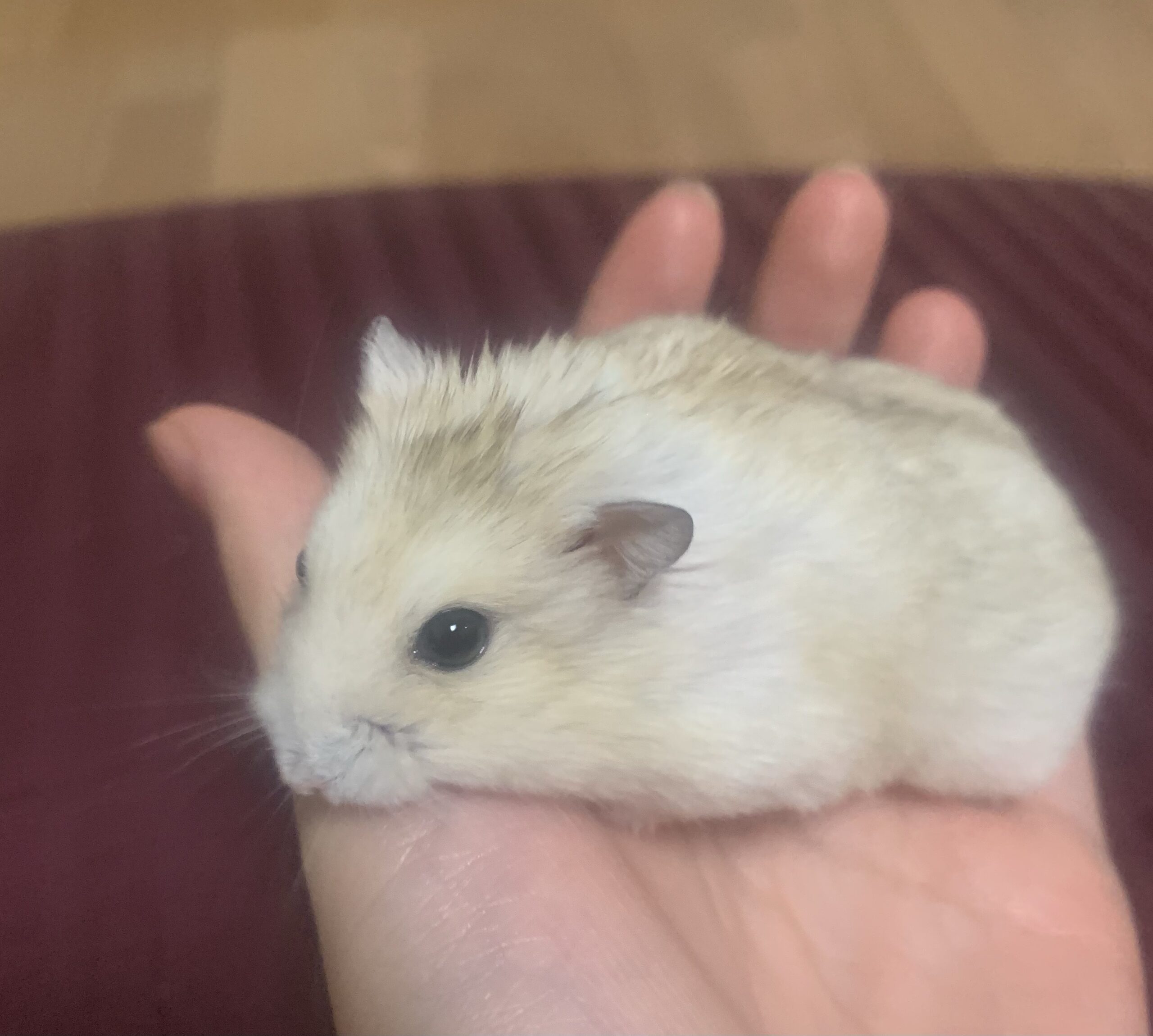Many people may feel hesitant about interacting with hamsters because they’re afraid of being bitten.
Even after two years of keeping hamsters, I haven’t completely overcome the fear of being bitten.
However, I’ve learned some methods for prevention and how to handle it.
In this article, I’ll introduce methods to minimize the chances of being bitten by hamsters and discuss what to do if you do get bitten, as well as the associated risks.
For tips on preventing hamsters from nibbling on the cage instead of your hand, please refer to the following article:
Reasons Why Hamsters Bite Human Hands
Feeling threatened
Hamsters are extremely cautious animals. Some may bite out of fear of their territory being encroached upon or of being attacked.
Have you ever had an unpleasant experience while cleaning their cage before?

Being startled or scared
Have you ever made a sudden movement or tried to lift them quickly?
Hamsters might bite out of fear or self-defense.
Mistaking hand for food
Since hamsters have poor eyesight, they often rely on smell to identify food.
If your hand smells like food or if you’re offering a treat, they might mistake it for food.

Out of curiosity or interest
Hamsters, especially young ones, tend to chew on unfamiliar objects out of curiosity.
Once they realize it’s not food, they usually stop biting.
Feeling unwell
If a hamster is under stress or not feeling well, they might become irritable and prone to biting.
If your hamster suddenly starts biting, it’s essential to check their health and environment.
Preventive Measures to Avoid Being Bitten
Familiarize them with your hand
Instead of immediately picking up the hamster, let them get used to the smell of your hand gradually.
Avoid making sudden movements and let the hamster approach you on its own.
Wear gloves during the initial interactions
Since hamsters can be extra cautious and nippy when you first start keeping them, wearing gloves during handling can be helpful.
Once they become more accustomed, you can try without gloves.

Act differently during cleaning and interaction
Hamsters may perceive the person cleaning their cage as a threat.
So, it’s a good idea to act differently when cleaning and when interacting with them.
For example, wear gloves only during cleaning to avoid associating your hand with cleaning disruptions.
What to Do If You Get Bitten
If a hamster bites you and doesn’t let go, avoid the urge to shake them off.
Instead, place your hand on the ground and wait patiently for them to release.
Lightly tapping their nose may help encourage them to let go.
If the bite causes bleeding, apply pressure to stop the bleeding, wash the wound thoroughly with running water, and disinfect it.
If there’s swelling, redness, or if the wound feels warm to the touch, consider seeking medical attention.
Possible Symptoms After Being Bitten by a Hamster
While most people don’t experience any significant symptoms after a hamster bite, it’s essential to be aware of potential risks:
Risk of anaphylactic shock
In rare cases, people may experience an allergic reaction to hamster saliva, leading to anaphylactic shock.
If you experience symptoms like dizziness, hives, abdominal pain, seizures, or difficulty breathing after being bitten, seek immediate medical attention.
Possibility of viral infection
Hamsters can carry viruses like Lymphocytic Choriomeningitis Virus (LCMV), which can be transmitted through bites or exposure to hamster feces.
If infected, it can lead to mild meningitis.
Pregnant women should be especially cautious, as LCMV infection during pregnancy can lead to severe birth defects.
Being mindful of these risks and taking appropriate preventive measures can help ensure a safe and enjoyable experience with your pet hamster.




